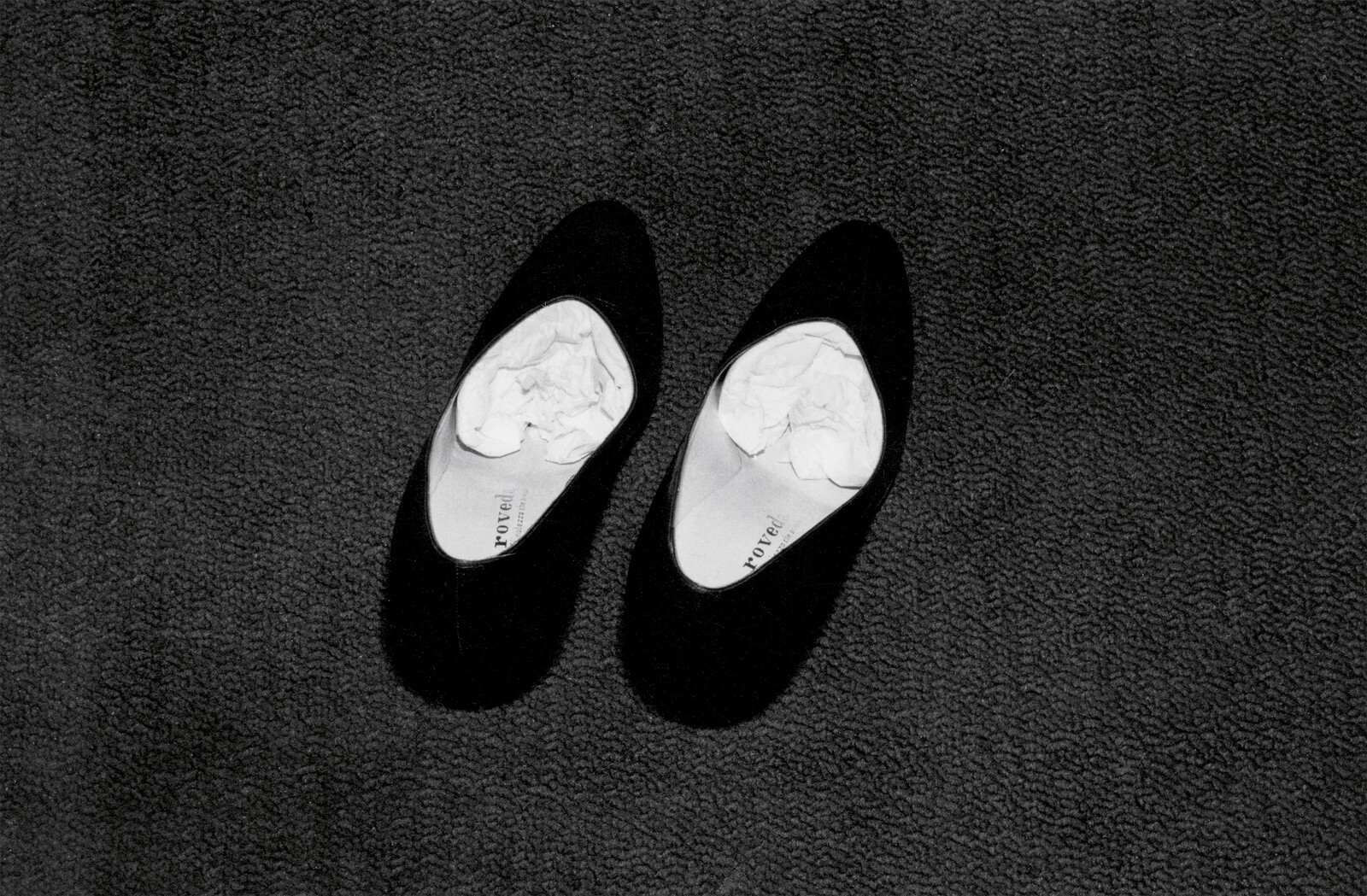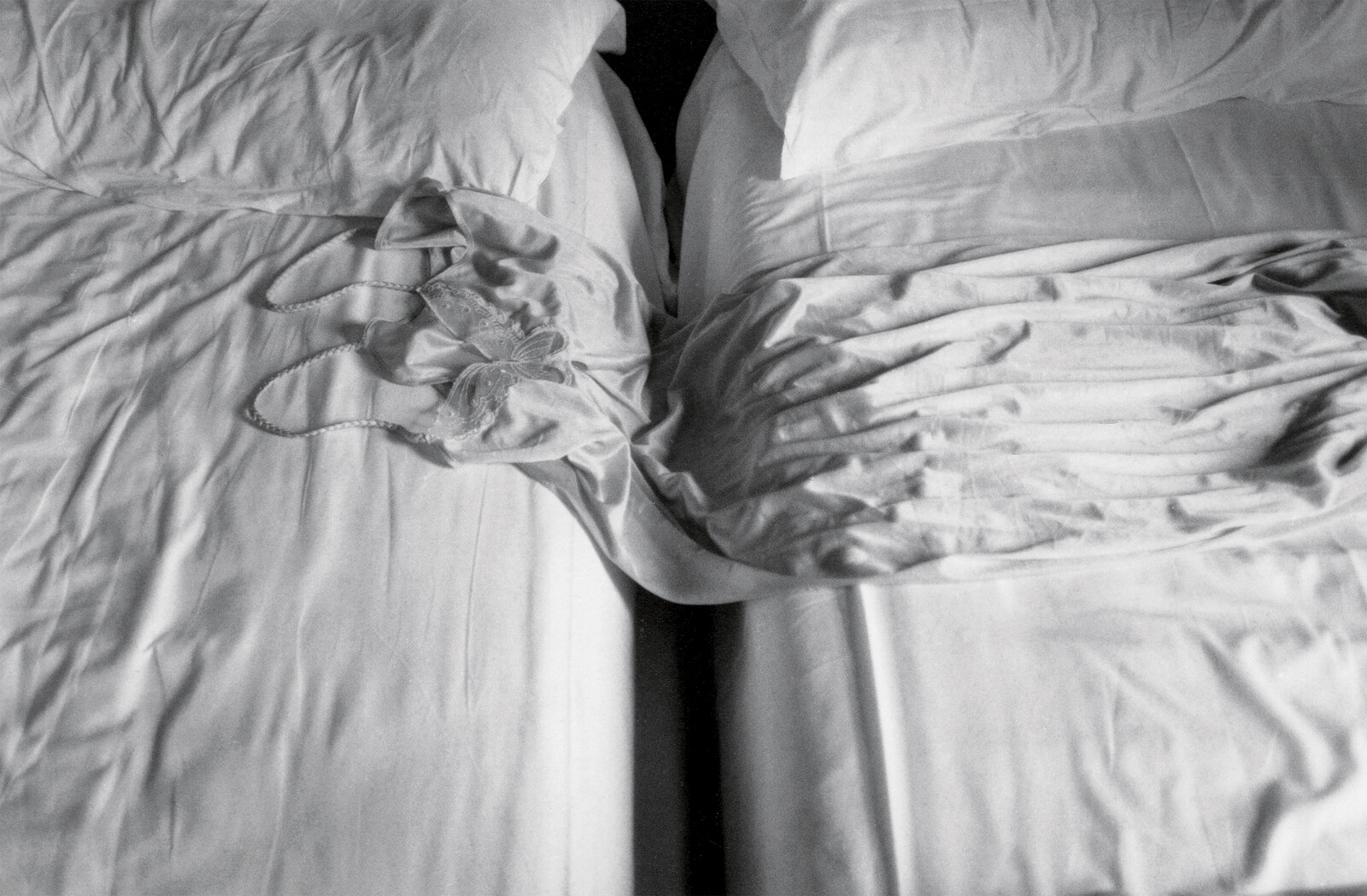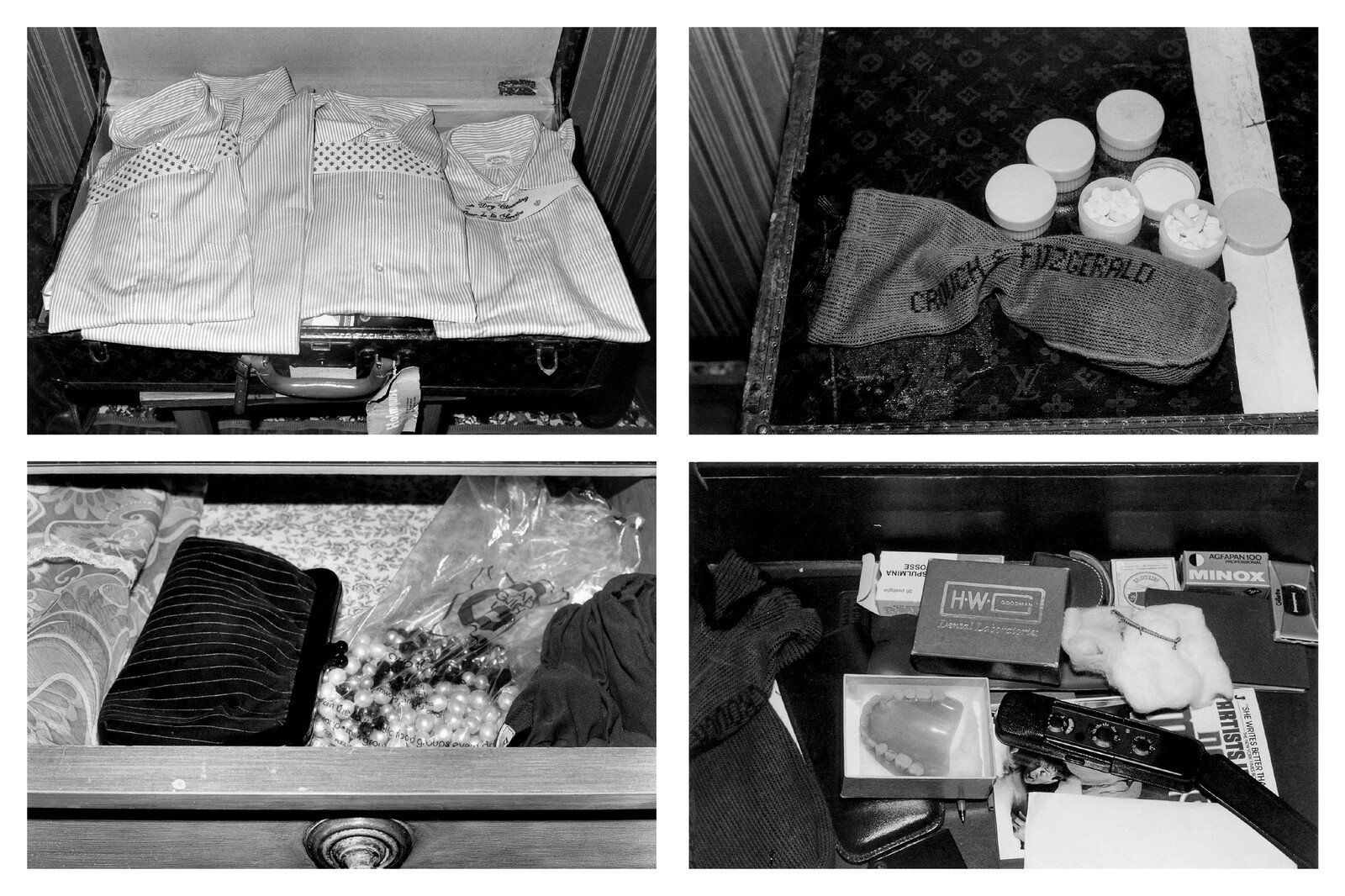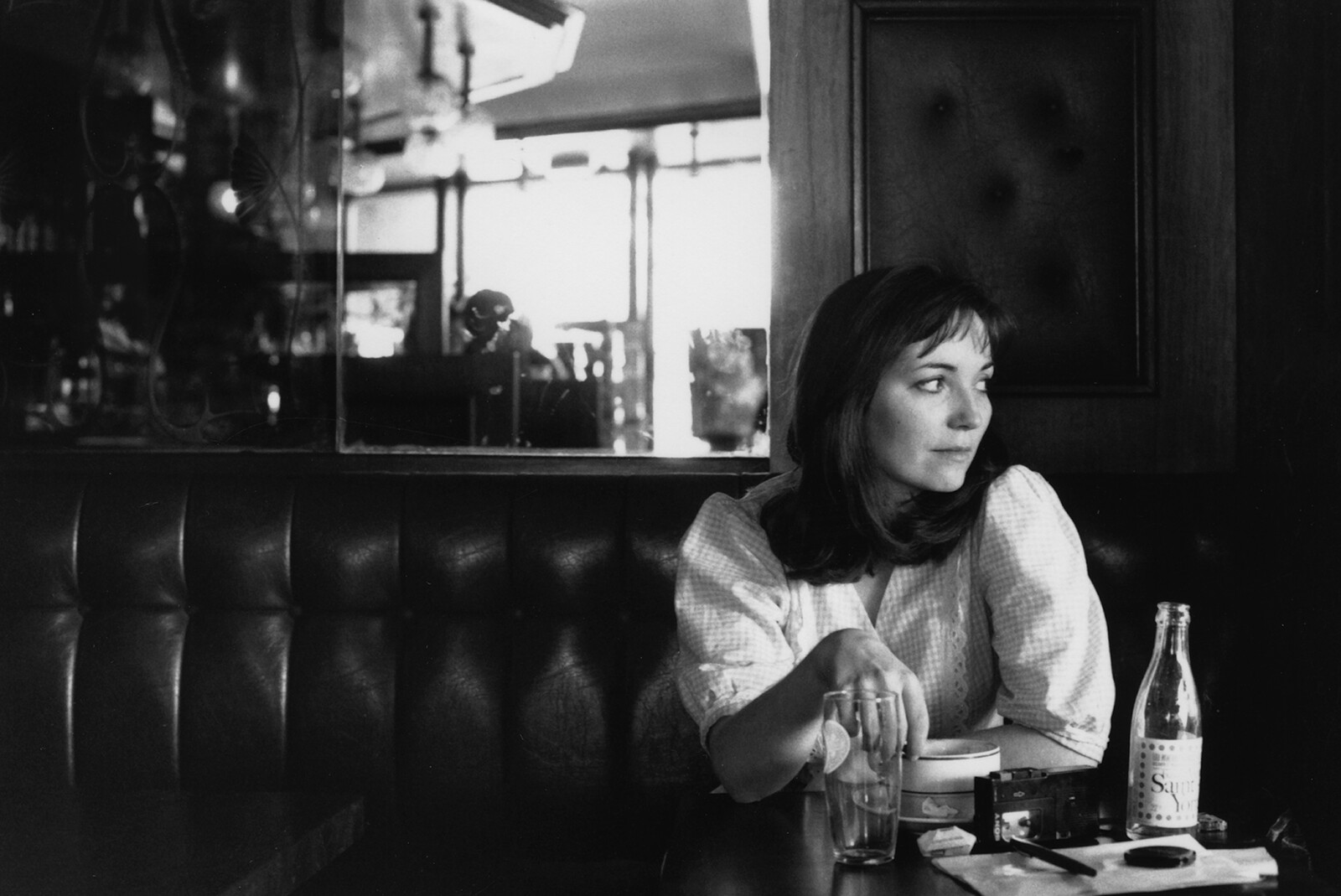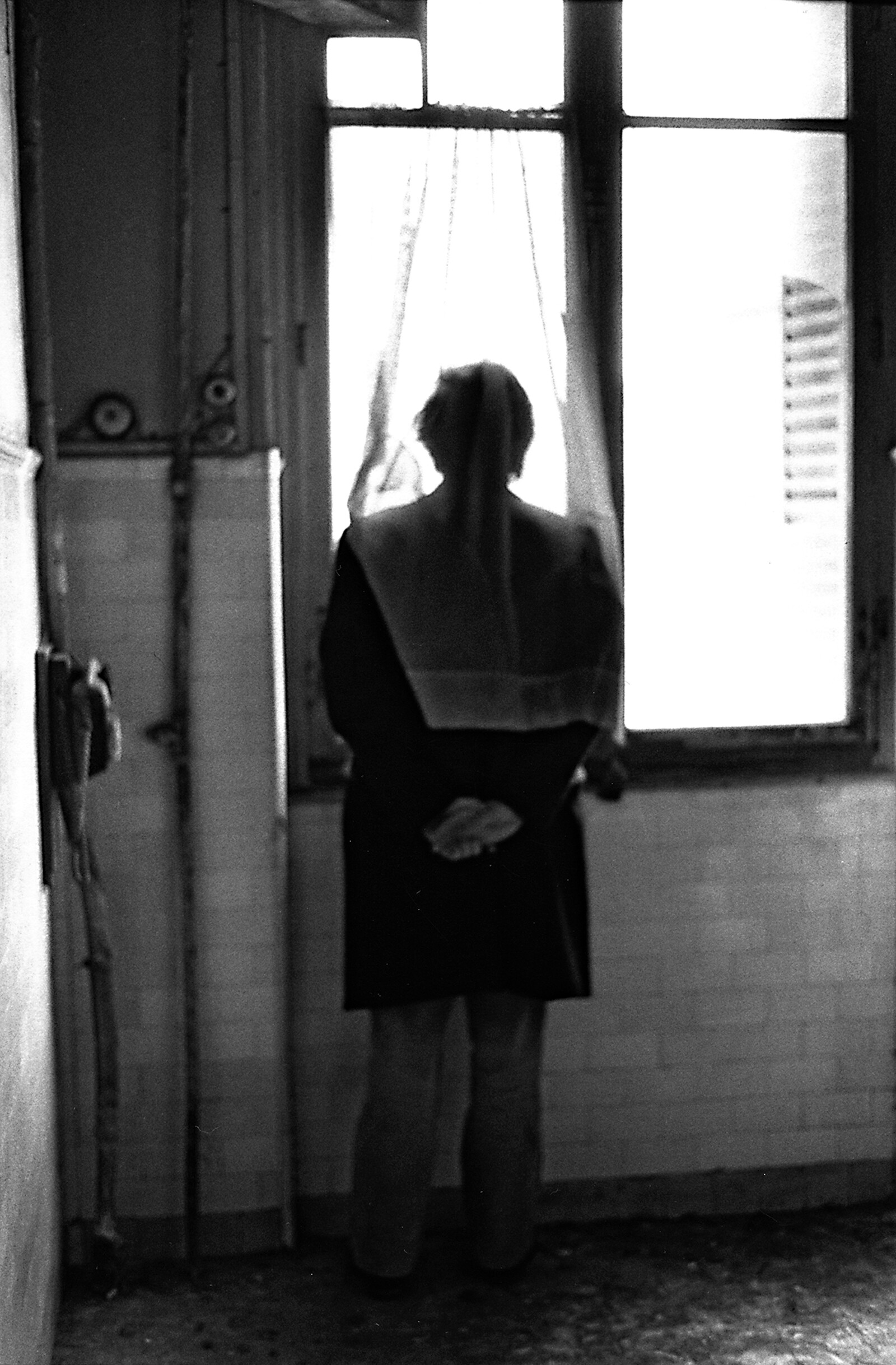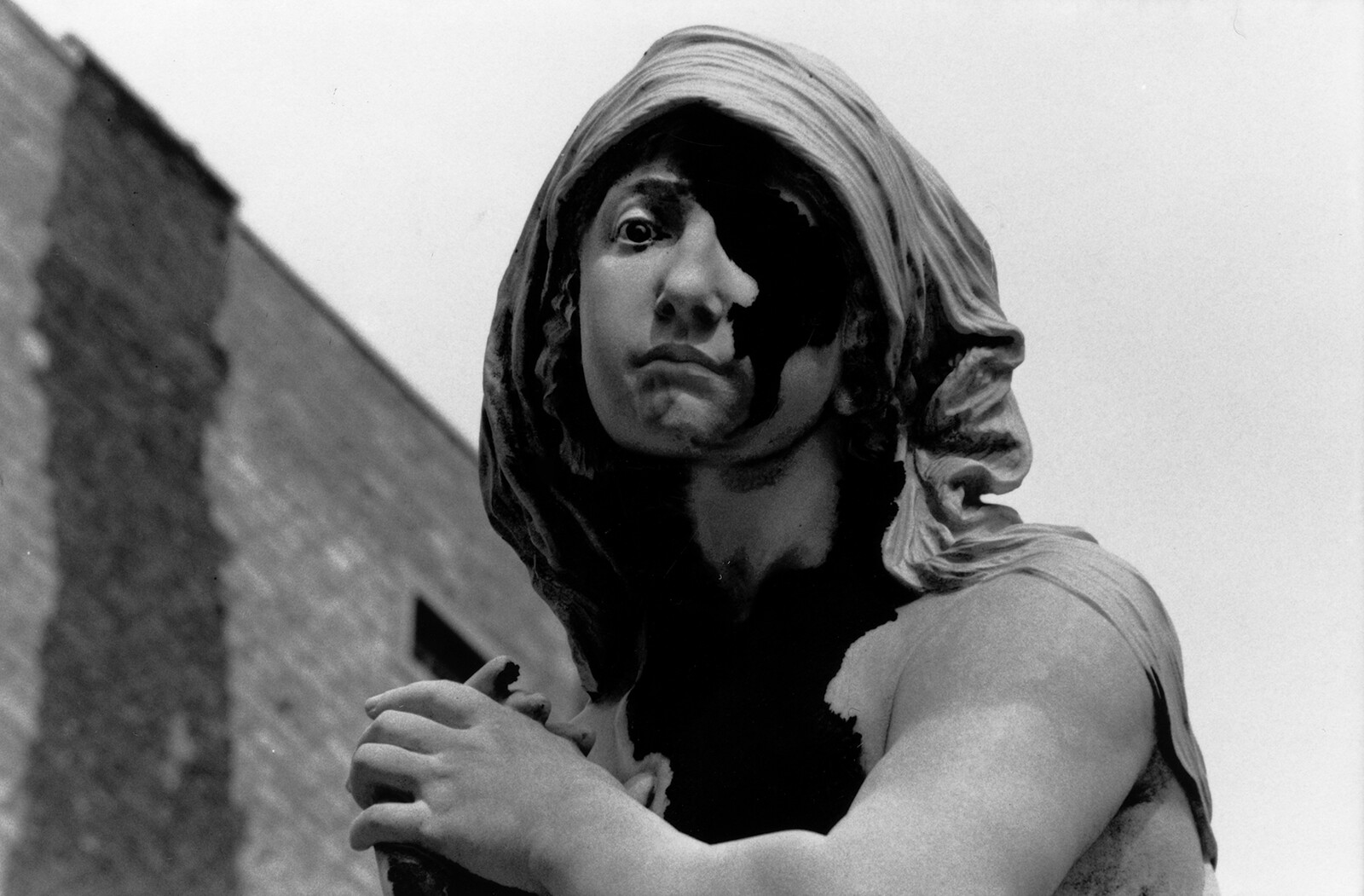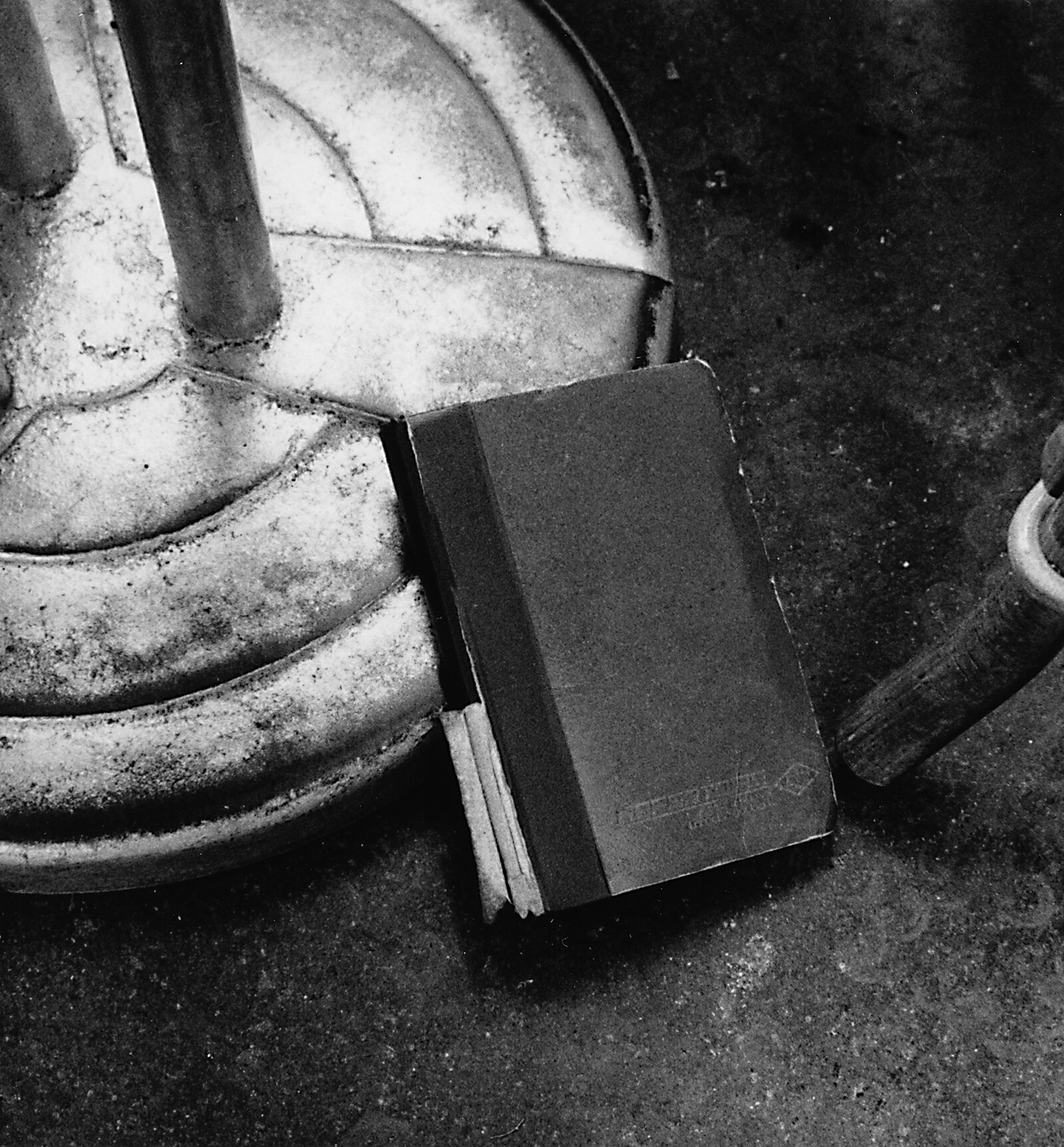The Rearview series addresses blind spots in recent art history by returning to an influential exhibition, artwork, or text from the past and reflecting on its relevance to the present. In this edition, Cal Revely-Calder considers a newly published edition of Sophie Calle’s The Hotel (1981) in the context of contemporary attitudes to privacy and surveillance.
How do you defend someone like this? She circulates people’s secrets, complete with photographs and notes. One time, she found an address book in the street: she rang up the names inside, asked them questions about its owner, and printed what they told her in a newspaper column, every day for a month. Another time, she got a job as a hotel maid: she removed objects from people’s luggage—underwear, medication, diaries—took pictures and wrote long captions, and published them in a book. She would follow people around without their knowledge, never mind their consent; she shadowed one couple from Paris to Venice, where she snapped them all day as they wandered around believing they were alone.
The Address Book (serialized in Libération in August 1983) was the project that got Sophie Calle denounced. The book’s owner, “Pierre D” (Pierre Baudry), returned to France that autumn; he saw what Libération had been publishing and, comparing Calle’s work to “police surveillance,” he retaliated by demanding that they print a nude photo of her. He obtained this image, taken during her stint as a model, by means that remain unclear, but the paper complied, which revealed that—however Callesque the revenge was supposed to be—they and Baudry saw a man’s property and a woman’s body as equivalent. (Marital rape could not, at this point, be prosecuted in France, so their mindset was not unique.) In the years since, Calle has described The Address Book as the only piece that left her with “guilt”, although the feeling wasn’t too durable. For instance, in 2011, to Interview magazine: “I did not anticipate how badly [Baudry] would react. But if I am being really honest, I didn’t regret it. I hesitated, but the sense of excitement was much stronger than the guilt.”1
Yet The Hotel—enacted in 1981, published in French in 1984, and now, for the first time, in a standalone English translation by Siglio Press—seems to me, forty years on, harder to square with the way that privacy is often viewed today: as something to be jealously guarded so that it can be retailed as the subject sees fit. Baudry’s own friends gave Calle her material, but at the Venetian pensione where she was employed, known only as “Hotel C.,” the guests had no idea what she was doing in their rooms. Her tape-recorder and camera were hidden; her view on locks and bags depended on whether she could reseal them and cover her tracks. In one room, she found “a little blue package,” assumed it was biscuits, and left it alone; in another, she found “a vibrator in a plastic case,” which she took out and photographed. Her writing is detached and detailed—snippets from journals; timings and lists—while the photos look more like forensic evidence than works of conscious style.
As Yve-Alain Bois put it in Artforum in 2000, The Hotel involved an “absolute dismissal of privacy.” He contended that “the artist […] could have found herself in real trouble;” that her project wasn’t just daring, but “flirted […] with criminal activity.”2 And yet, with Calle’s early work, the relation between “real” and “artistic” is often viewed as exculpatory: an aesthetic transfiguration that, in some obvious way, can justify what she does. That stance is a route around questions such as: Did any of the people she exposed ask for this? And why would they care if you told them it made for fascinating art? Few critics have acknowledged, as Bois does, that the everyday ethics on which Calle’s work depends—to become subversive, to become a thrill—are live issues for the people involved. When Alfred Pacquement, for example, said in 2003 that Calle’s “encounters act as pretexts for her works,” he didn’t ask whether being a “pretext” is what any of us would want. In another essay, from 1983, Jean Baudrillard said that Calle and her subjects have a “wonderful reciprocity,” a concept that assumes the kind of consent that the artist purposely never sought.
Calle herself, in these early projects, avoids the ethical lexicon. At one point, in The Address Book, she admits to “pangs of conscience” when a man reacts angrily to her work; later, when speaking to Interview, she would call Pierre Baudry a “victim” of sorts. But in The Hotel, and elsewhere, she admits to no such regrets and uses no such word. And it isn’t easy to formulate a critique of her approach, to outline the standard by which it’s wrong. When Bois says, for example, that her actions “flirted […] with criminal activity,” it seems intuitive, but it’s hard to show. Your property is not your person—whatever Baudry and Libé believed—and a hotel isn’t quite a private space. (I’m no expert in 1980s Italian law, but a solicitor tells me that Calle’s deeds probably wouldn’t be actionable in Britain today.)
Even so, forty years on, I suspect that The Hotel would be impossible to re-stage. It would fall victim—in a fitting irony—to how public space has been technologized in the name of capital’s security. Internal surveillance in most hotels would capture Calle in her furtive acts. She could, it has to be said, seem rather careless about being caught. On day three, she puts on some of a guest’s makeup and sprays herself with their perfume; the next morning, and for five more days, she’s mysteriously barred from that room. On the last day, she’s reading a diary that she’s pulled out of a suitcase, when a key starts to turn in the lock; she replaces the book but leaves the case open, and ten minutes later is told that the guests have asked to leave. “Did I play a part in causing this departure?” Calle wonders. She offers no opinion on the matter, much less on what she did.
She was saved, in both cases, by a voyeuristic imbalance: she was never being surveilled at the same time as the guests. But such a personal grip on the situation is implausible today, when any voyeur is themselves being watched. In the 1980s, CCTV wasn’t all-pervasive, it could only be stored on tape, and to a small business such as a local hotel it would be costly and cumbersome. Calle rarely refers to anything that she hasn’t set out to record—she obeys the rules of what she calls her “games”—but it’s a safe bet, from the way she behaves, that Hotel C. had no system of monitoring. By contrast, a guest with suspicions today could ask for the hotel’s footage, or stay quiet and record their own, since a smartphone is, by design, a multi-purpose surveillance machine. (Technology might forestall some of Calle’s other projects, too, including the best-known one: Pierre Baudry’s contacts would be stored on his iPhone, locked by a code or remotely “bricked.”)
As they introduce The Hotel to twenty-first-century readers, the publishers suggest that Calle’s “thievery is the eye of the camera,” which is a good and subtle claim: it invokes a literal meaning, the crime of theft, to stress that Calle was no criminal, while suggesting that what took place should, nonetheless, be viewed as bold. But if she staged this project now, Calle might be accused of a different theft: that of our right to control our identity. “Privacy” is still a nominal watchword, even though we, or our “intelligent” gadgets, accept its loss as the daily price of convenience. Yet the way that a life is recorded, and shown on the platforms intertwined with those gadgets, is held up as an individual, even lucrative, choice. Some of the guests in Calle’s hotel are keen on display, albeit of a modest kind. The second couple in Room 29 are on honeymoon, and Calle digs out a small hardcover book: their ricordo matromonio, or “wedding souvenir,” which leaves her “very moved.” Such a book was designed for the couple, and perhaps for their families and neighbors too. But memories today are stored as data, which isn’t under our personal control.
A picture of a happy couple, in a certain setting, with certain commodities in view, is both economically and emotionally rich; it’s seen by humans and algorithms at once. Plenty of people know this, and—whether through laziness or contentment—are willing to participate. The sale of one’s own privacy can even be repackaged as “empowerment”: each chapter of The Hotel, for instance, would work as an Instagram Story, disseminated instantly and globally by the guests themselves, with no production costs, minimal hassle, and a potential fillip for their personal brand. (This is, after all, the business model of the influencer industry, worth billions and still on the up. Our solicitor suggests that if, today, Calle were to put her pictures online, a guest could “make enough noise” to force her to take them down.)
And yet, as Natasha Stagg warned in 2019, to behave this way is to be a handmaid of capital: “At some point, every person becomes an avatar in the mind once our main interactions with them are via social-media feeds.”3 The Hotel is about trying to gauge people, like black holes, from their traces and effects, but while it can seem like Calle’s subjects are “avatars,” assembled from data-points, they don’t have to be merely that, because you don’t have to see them that way. In several of her projects, Calle seems to intuit that she’s orbiting souls, but not touching them—though she can’t succumb to the anxiety, as her art depends on believing otherwise—at which points she betrays a frustration at the sudden banality of what she records. In Room 24, for example, she has an “immediate feeling of boredom,” and grumbles about the man’s trousers: “They reflect the tedium that prevails in this room. Unless it’s just my own weariness.” On one level, she appreciates, the better way to meet these people, to get to know them, would be to have the conversations she’s resolved, in becoming a maid, to avoid. The privilege of face-to-face interactions, unlike snooping or platform capitalism, is also its moral integrity: that it gives you the option of saying no. If, in 2021, the honeymooning couple returned to Hotel C. for their fortieth anniversary, their expectation of privacy might remain total: our room, our lives, our property, our right to hide from your gaze. But for a younger generation, more technologically savvy, one objection might be different and new: they might expect to supervise the “sharing” of their souls. To many now, publication is a fait accompli, and editorial control is the only demand. The complaint wouldn’t be that Calle was exposing too much, but that she’d be stopping them doing it first.
Sophie Calle’s The Hotel was published by Siglio Press on November 12.
Louise Neri, “Interview with Sophie Calle,” Interview (March 7, 2009) https://www.interviewmagazine.com/art/sophie-calle
Yve-Alain Bois, “Character Study: Sophie Calle,” Artforum (April 2000) https://www.artforum.com/print/200004/character-study-sophie-calle-334
Natasha Stagg, Sleeveless: Fashion, Image, Media, New York 2011–19 (Cambridge: MIT Press, 2019), 189.

